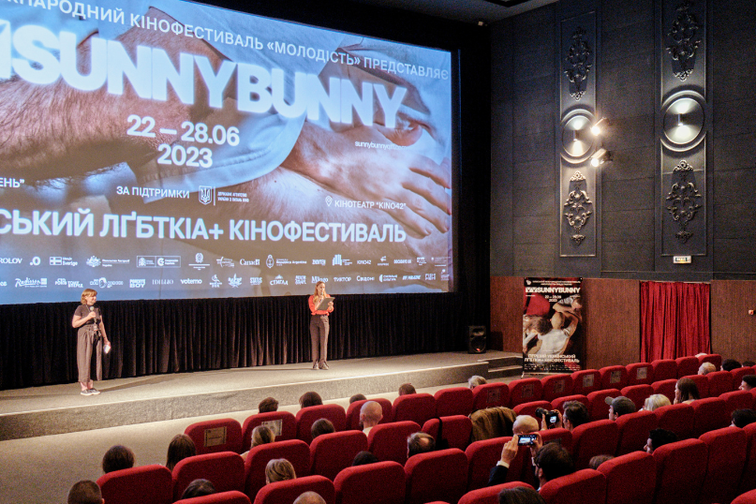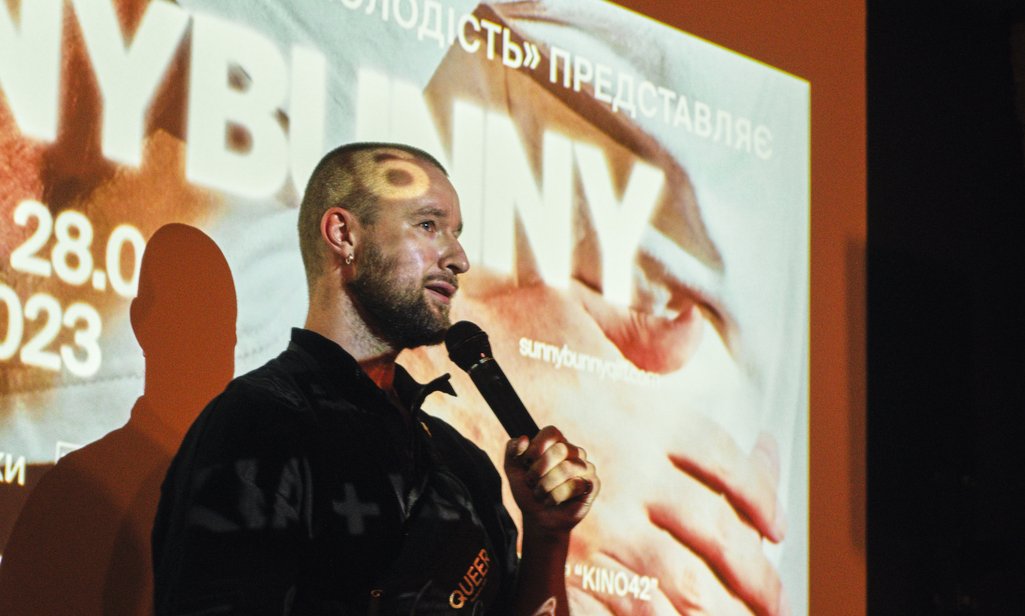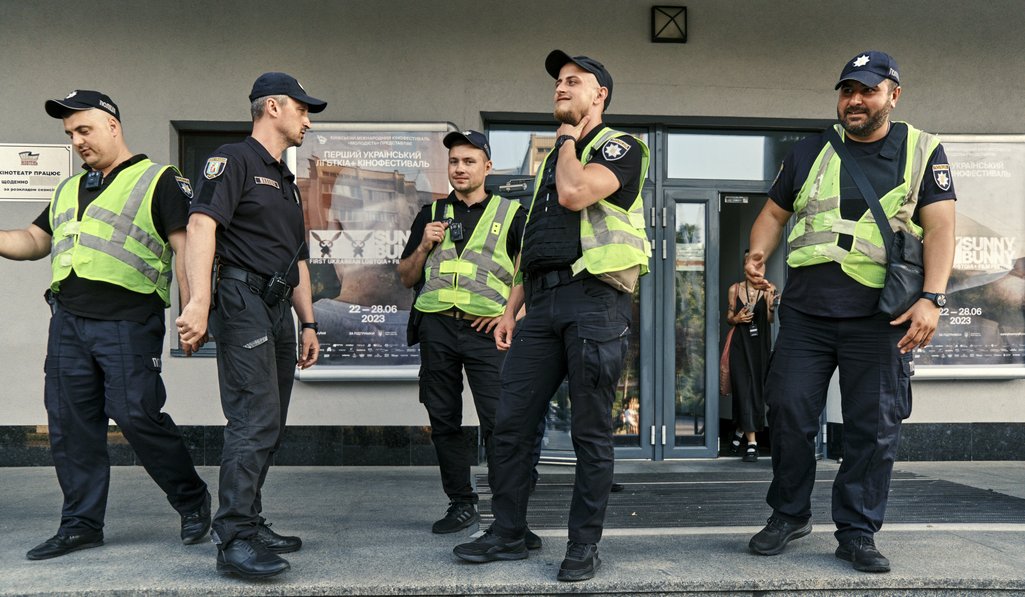Sunny Bunny in "Ukraine" Holds First LGBT Film Festival
 |
| The opening ceremony of the LGBTIQ film festival Sunny Bunny | Sunny Bunny |
Ukraine held its first-ever LGBTIQ film festival last month, a significant sign of Ukrainian society’s increasing acceptance of the queer community, according to its organizer.
“Our attitude towards life has changed. At any moment, a Russian rocket can hit and that’s it,” the festival’s director, film curator Bohdan Zhuk, told openDemocracy.
“It is clear that the issue of human rights and the rights of LGBTIQ+ people are urgent now,” Zhuk said, adding that it was a case of ‘if not now, then when?’ He had been planning such a festival for some years, but the pandemic and Russia’s full-scale invasion had knocked his plans off-course.
The week-long Sunny Bunny festival, held in Kyiv at the end of June, screened more than 60 films, including feature films, documentaries and shorts, representing the diversity of international queer cinema, alongside public talks and industry events. It also collaborated with Ukraine’s public broadcaster Suspilne to present a documentary on the experiences of three LGBTIQ Ukrainians during the war.
Due to the ongoing war, Pride marches and other traditional forms of activism are not possible at the moment. In this context, as part of the country’s existential fightback against Russian aggression, the Sunny Bunny festival was notable – as a cultural event, a political act and a social statement.
One might expect that in wartime people would be less interested in LGBTIQ rights, but so far this is not the case. In fact, Russia’s invasion has precipitated a public discussion of the challenges faced by the LGBTIQ community – partly because of the public position taken by LGBTIQ military personnel. More and more soldiers have come out in public and appeared in the media demanding equal rights.
 |
| Sunny Bunny’s director, Bohdan Zhuk, believes the biggest problem facing Ukraine’s LGBTIQ community is visibility | Sunny Buny |
In particular, the issue of civil partnerships has gained new momentum. A draft civil partnerships law was submitted to the Ukrainian parliament in March (Sunny Bunny played promo clips for the law before its screenings).
A nationwide opinion poll held this year by the Kyiv International Institute of Sociology showed an increase in positive attitudes toward LGBTIQ people, compared to similar polls in 2022 and 2016.
In 2016, only 4.8% of respondents supported the introduction of civil partnerships for same-sex couples. In 2022, the figure was 23.6%, and this year it increased again, to 28%. Opposition to civil partnerships has continued to drop, from 69% (2016) to 41.9% (2022) and 38.9% (2023).
In another survey, held in May and looking at a wide range of topics to do with the war and Ukraine's future, the majority of respondents (53%) agreed that LGBT+ people should have the right to civil partnerships; 22% disagreed.
Zhuk believes that the biggest problem facing Ukraine’s LGBTIQ community is visibility; people need to be able to live openly without hiding their queer identity – and events like Sunny Bunny aim to make this easier.
He recalls how during Ukraine’s Euromaidan revolution in 2014, people consciously decided not to participate as LGBTIQ activists in order to maintain the “unity of the protest movement”. But this approach backfired later, with criticism such as: “Here you are, marching with [LGBTIQ] parades, but where were you during the revolution or the war?”
Now that members of the military are choosing to come out publicly, stereotypes about LGBTQ+ Ukrainians are being challenged.
 |
Police patrol near the entrance to the cinema where the film festival is taking place
Sunny Bunny
Although Sunny Bunny passed peacefully, there were security concerns. Before the festival opened, a far-right Telegram channel accused it of screening films about “incest and pedophilia” and invited its followers to “visit” the festival. The post was accompanied by a photo from 2014 of the cinema on fire – a blaze started by a smoke grenade during the screening of an LGBTIQ film. This year, police were patrolling the venue to enforce public order.
Sunny Bunny was supported by the Ukrainian State Film Agency, the sector’s main public body, which was the only Ukrainian state institution to back it. The biggest share of funding came from Germany’s Heinrich Böll Foundation and Sweden’s RFSL (The Swedish Federation for Lesbian, Gay, Bisexual, Transgender, Queer and Intersex Rights). Other support came from foreign embassies that promoted films from their own countries, while some Kyiv-based private initiatives provided in-kind services.
Zhuk said he had never doubted that they would be able to hold the festival, although for many it was a surprise. He wishes there were more visitors but still, in his opinion, the festival was a kind of test for the country and the authorities – this test was passed, but the examination continues.
Democracy Now
Comments